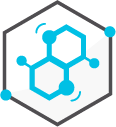Linking RWE to Clinical Trials

Real world evidence (RWE) is continuing to have a dramatic impact on healthcare decision making within the Life Sciences industry. In ISPOR’s 2022-’23 ‘Top 10 HEOR Trends Report’ released in January, RWE topped the list once again with the society noting, “(It) holds the promise of timely data at a reasonable cost, can offer large sample sizes that enable analysis of subpopulations and less-common effects, and can provide a representation of real-world practice and behaviors.”
Most Life Sciences companies have begun to tap into the power of RWE for various facets of the product life cycle, including assessing disease incidence, as a basis for commercial planning, and for HEOR studies. However, it’s the use of RWE in clinical trials that will reveal its truly transformational power as it not only optimizes and accelerates trial phases, but also offers new capabilities and replaces legacy processes.
Tokens: The Key to Patient Privacy, Data Linking, and Greater Insights
As with all cases of accessing and using patient data, protecting patient privacy is the first priority, and tokenization makes it possible. Tokenization is a process that supports de-identification by removing patient identifiers and generating a patient-specific encrypted token. Because the patient-specific tokens are created using the underlying patient identifiers before they are removed, the tokenization process enables the creation of a consistent token from any dataset. With these tokens, researchers can link real-world data from the trial participant’s previous medical history and track their active engagement across the healthcare system outside of the trial without compromising the participant's privacy. This allows researchers to see the complete picture of the patient’s healthcare journey — not just the events that occur within the confines of the clinical trial. These insights assist with determining patients’ eligibility for a trial, and further, with conducting subgroup analyses for patient cohorts. They also augment the manual documentation of what the patient is reporting, giving researchers greater visibility into what may be impacting participants’ health experiences, outcomes, and/or why they drop from a study.
On the Verge of Transformation:
How RWE Can Reconstruct Clinical Trials
.png?width=86&name=PreTrial-04-01-01-01%20(1).png)
|
Pre-trial:
|

|
During the trial:
|

|
After the trial:
|
By tracking individual engagement with the U.S. healthcare system for hundreds of thousands of people in near real time — via tokenization — RWE will transform clinical trial research. In turn, Life Sciences companies will be able to offer patients access to life-changing and life-saving treatments, faster.
To learn more about the power of linking RWE to clinical trial data,  , Generate Richer Insights Before, During, and After the Trial with Real-World Data.
, Generate Richer Insights Before, During, and After the Trial with Real-World Data.






